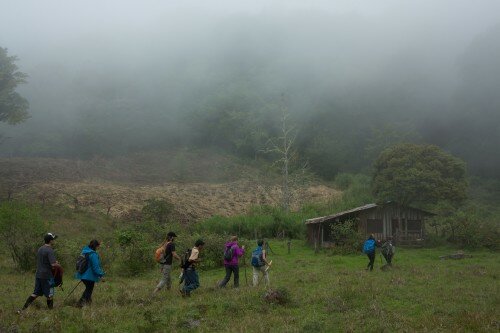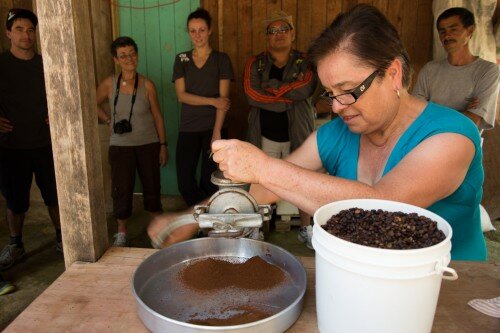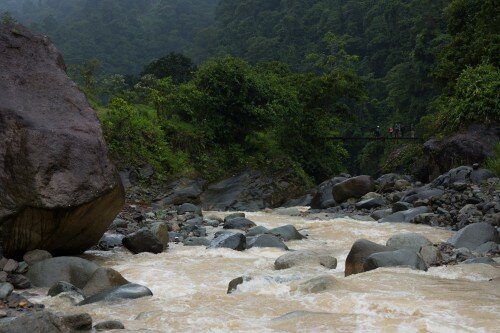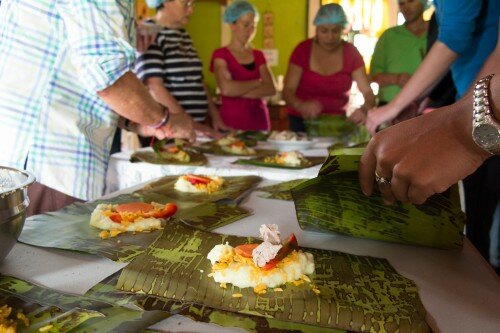Vea esta publicación en español.

By Thomas Enderlin
As the Costa Rican tourism industry continues to take off, one of the biggest challenges rural communities face is finding a balance between the conservation of traditional ways of life and the need for economic growth. A visionary new agrotourism project in the Dota region of Costa Rica--developed by a group of community leaders and Vancouver Island University--helps rural communities establish financial security, protect the environment and conserve their traditions.
The project is centered on a multi-day trail, known informally as the Los Santos EcoTrail. Descending through the Dota region before arriving at the Pacific Ocean in the city of Quepos, the trail links a handful of small coffee farming communities and homestays. Currently, five Rainforest Alliance Certified™ farms are directly involved in the Los Santos EcoTrail project, with many others indirectly benefiting from the gradual growth of community-based ecotourism in the area.
The Dota region is world famous for its top quality coffee production. Here, Rainforest Alliance certification is helping to improve farming practices while reducing environmental impacts and providing economic and social benefits. But volatile coffee market swings and erratic climate patterns make economic diversification an important attribute in the region--and local communities are achieving this critical diversification through small-scale tourism enterprises connected to the Los Santos EcoTrail.

"We really believe in this project, and we are doing this for the future of our children," one community representative explained. "We love our rural way of life, and don't want to see that disappear."
With increasing demands for adventure and culinary tourism and an upswing of consumers interested in purchasing products featuring the Rainforest Alliance Certified seal, projects like the Los Santos EcoTrail will provide opportunities for travelers to take their commitments one step further. These immersive vacations can provide a more direct connection to the origins of certified ingredients while demonstrating how farm and forestry certification benefits local rural communities and biodiversity.


On the trail, visitors also learn how local communities have survived off the land for generations. The people of Providencia still grind their shade grown coffee by hand. The people of Naranjillo let guests test their skills processing sugar cane into juice and crude molasses. Elsewhere along the journey, visitors are invited to make tortillas, learn traditional dances, and make artisanal crafts.
This model of diversified local economics is the future of sustainability. The Rainforest Alliance is currently exploring other agriculture and forestry landscapes that could benefit from small-scale sustainable agrotourism projects so that consumers can have an opportunity to travel to the places where their coffee, tea, and chocolate originate.
For more information on unique agrotourism opportunities, visit the Heart of Gold website.
Thomas Enderlin has a background in conservation, sustainable tourism, commodity trading and agriculture. He is currently based in San José, Costa Rica, where he divides his time as a project consultant, adventure travel guide, photographer, writer and cactus cultivator.


